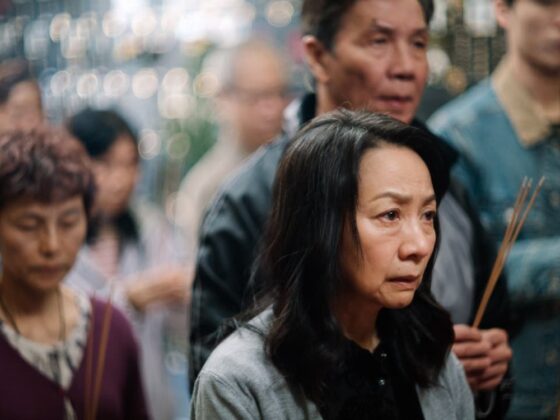On 24 October 2023, the Court of Appeal handed down the judgment of Ng Hon Lam Edgar v Secretary for Justice [2023] HKCA 1224, confirming that same-sex marriage is to be treated the same as heterosexual marriages under the Intestates’ Estates Ordinance (Cap. 73, “IEO”) and the Inheritance (Provision for Family and Dependants) Ordinance (Cap. 481, “IPFDO”).
Background
The original applicant, Edgar Ng, married Henry Li, in a valid same-sex marriage in the UK. They lived in a Home Ownership Scheme (“HOS”) flat developed by the Hong Kong Housing Authority, registered in Edgar’s name, as their matrimonial home. Edgar had applied for judicial review against the Housing Authority’s refusal to add Henry as an authorised occupant of the HOS flat, and the refusal to consider allowing Henry to receive a transfer of ownership of the HOS flat without the payment of a premium. The Housing Authority’s appeal was dismissed earlier this month on 17 October 2023.
Due to the Government’s general refusal to recognize same-sex marriages lawfully performed abroad, Edgar was worried that his marriage would not be regarded as a marriage within the definition of “husband”, “wife” and “valid marriage” under Section 3 of the IEO and Section 3 of the IPFDO.
Edgar applied for judicial review against the Secretary for Justice (“SJ”) to challenge these provisions (collectively “the marriage provisions”), insofar as they did not include persons that had entered into same-sex marriages in foreign jurisdictions.
Mr Justice Anderson Chow (as he then was) granted the judicial review and held that the marriage provisions are discriminatory and unconstitutional for being contrary to the equality provision under Article 25 of the Basic Law, and Articles 1(1) and 22 of the Hong Kong Bill of Rights. Specifically, Chow J ruled against the SJ on (a) the issue of differential treatment on a prohibited ground, and (b) justification according to the two-stage approach in considering discrimination.
This was the SJ’s appeal against Chow J’s judgment.
Tragically, Henry substituted Edgar as the applicant to carry on these proceedings, after Edgar passed away in December 2020.
The marriage provisions
The following definitions of “husband”, “wife” and “valid marriage” appear in the IEO.
Section 2(1) of the IEO defines “husband” and “wife” as in relation to a person, “a husband or wife of that person by a valid marriage”.
Section 3 of the IEO defines a “valid marriage”. The relevant provision is Section 3(d) “a marriage celebrated or contracted outside Hong Kong in accordance with the law in force at the time and in the place where the marriage was performed.”
Turning to the IPFDO, Section 2 of the IPFDO defines “husband”, “wife” and “valid marriage” identically as the IEO.
The issues
SJ advanced 3 sets of grounds of appeal:
- 1. Comparability:
- a. Comparability: Same-sex marriage and heterosexual marriage are not comparable for the purposes of gauging whether there is discrimination against the applicants by reason of their sexual orientation. The constitutional recognition and protection of marriage under Article 37 of the Basic Law is confined to heterosexual marriages.
- b. Rights and duties confined to heterosexual couples: There is also a cluster of expectations and legal obligations that apply only to married persons only, such as Section 8 of the Matrimonial Proceedings and Property Ordinance, which covers the duty to maintain a spouse – but not for same-sex couples.
- c. Coherent package: The references to the statutory definitions of “husband”, “wife” and “valid marriage” in the marriage provisions, as well as their legislative histories, demonstrate the laws of matrimony and inheritance are tightly intertwined and mutually reinforcing. When considering the legislative background of the IEO, IPFDO, the Marriage Ordinance, the Marriage Reform Ordinance, and the Deceased’s Family Maintenance Ordinance (predecessor of the IPFDO), these ordinances should be approached and understood as a coherent package.
- 2. Legitimate aim and rational connection: SJ argues that there are certain core rights and obligations that are attached and unique to traditional opposite-sex marriage to give it a special status. IEO and IPFDO are two such rights and obligations attached.
- 3. Proportionality: the learned Judge erred in ruling that the differential treatment has only a limited interference with the same-sex married couple’s equality rights, because the applicants have the freedom and thus a reasonable alternative to make a will.
The Court of Appeal’s decision
Comparability
The Court of Appeal, applying QT and Leung Chun Kwong, held that the issue of differential treatment was context dependent. As opposed to SJ’s submissions, in this case the Court was not concerned with the union of an unmarried couple. The starting point for this Court to consider whether the applicants were treated different by reason of their sexual orientation, must be whether the applicants’ relationship bore the same characteristics of publicity and exclusivity which distinguish a heterosexual marriage.
In this case, no such dispute arose. The applicants’ marriage was a comparable for purposes of gauging whether there was discrimination against them by reason of their sexual orientation.
The marriage provisions were intentionally drawn wider than marriage under the laws of Hong Kong. The IEO and IPFDO did not serve the purpose of promoting traditional heterosexual monogamous marriage. Neither was the IEO or the IPFDO premised and built upon the lifetime legal obligations of the deceased towards their spouses.
The Court also confirmed Chow J’s judgment, that the purpose of the IEO was to give effect to the presumed intention of an intestate. The purpose of the IPFDO was to prevent a deceased person from avoiding his duty to his dependants and providing an overriding system of discretionary family provision outside the code established for distribution of the deceased’s estates with exceptional circumstances. The classes of eligible beneficiaries were not confined to those whom the deceased were under a legal obligation to maintain during his lifetime, but also those whom the deceased was under a moral obligation to maintain.
The differential treatment arising as a result of the applicants’ sexual orientation was obvious. In this case, Edgar had not made a will. Under the IEO, Henry would not be entitled as a spouse to the matrimonial home. Under the IPFDO, Henry could only rely on Section 3(1)(ix) which requires Henry to prove that he had been maintained by Edgar during his lifetime. Whereas on the flipside, a surviving spouse in a heterosexual marriage could rely on Section 3(1)(i), receiving financial provision reasonable in all the circumstances of the case for such a person to receive, whether or not that provision is required for his maintenance: Section 3(2)(a).
Legitimate Aim and Rational Connection
The marriage aim aims to support and uphold the integrity of the traditional institution of marriage in Hong Kong, being the voluntary union of one man and one woman to the exclusion of all others, by specially providing (amongst other public entitlements and benefits) inheritance rights between spouses to validly married men and women. The family aim aims to encourage opposite‑sexual unmarried couples to marry so as to ensure that their spouses will be afforded spousal status or priority under inheritance law. These are argued by the SJ to be core rights and obligations attached and unique to traditional opposite-sex marriage, and must be restricted to traditional opposite-sex marriages.
The CA held that this argument had been rejected by the Court of Final Appeal before in QT and Leung Chun Kwong. Hence, Chow J was correct in holding that there was no rational connection between the differential treatment under the IEO and IPFDO under the marriage aim and the family aim.
Turning to the coherence aim, it is expressed as an aim to maintain and optimize the overall coherence, consistency and workability of the extensive and interlocking schemes of Hong Kong legislation that rest upon or otherwise involve the institution of marriage as recognised under domestic law and Article 37 of the Basic Law.
The coherence of law in respect of marriage will not be undermined by the applicants having recourse to the IEO and the IPFDO. Neither was there any explanation available for the differential treatment. The coherence aim argument was in itself based on the premise that such responsibilities and obligations are only confined to those under a heterosexual marriage in Hong Kong. The SJ’s argument was circular and self-serving and was rejected.
Proportionality
The interference with the applicants’ rights were not limited. The current regime flat out denied the entitlements relevant to the differential treatment when compared with their opposite-sex counterparts. Chow J, as he then was, was also correct in adopting the high end of the level of review.
The SJ’s appeal was dismissed.
The significance
This judgment is another step forward for achieving equality for the LGBTQ+ community, continuing from the series of judgments handed down since late August. It confirms the recognition of same-sex marriages under the umbrella of “a marriage celebrated or contracted outside Hong Kong in accordance with the law in force at the time and in the place where the marriage was performed” in the IEO and the IPFDO.
Prior to this judgment, a same-sex spouse of a deceased person was not entitled under the IEO and could only resort to the catch-all category in Section 3(1)(ix) of IPFDO – contrasting starkly with their heterosexual married counterparts.
This judgment effectively allows same-sex spouse of a deceased person to inherit as the widow or widower under the IEO, and to apply for reasonable financial provision under the IPFDO. Widows or widowers under the IPFDO have a special status, that the reasonable financial provisions given to them shall be cross-checked against the provision they would have received had the marriage ended by divorce instead of death: Section 2(b) IPFDO (also known as notional divorce).
The significance of this is that a claim by the surviving spouse of the same sex marriage would be cross checked with the notional divorce. Under s5 of IPFDO, the Court would regard the following matters when exercising its power:
(a) the financial resources and financial needs which the applicant has or is likely to have in the foreseeable future;
(b) the financial resources and financial needs which any other applicant has or is likely to have in the foreseeable future;
(c) the financial resources and financial needs which any beneficiary of the estate of the deceased has or is likely to have in the foreseeable future;
(d) any obligations and responsibilities which the deceased had towards any applicant or any beneficiary of the estate of the deceased;
(e) the size and nature of the net estate of the deceased;
(f) any physical or mental disability of any applicant for an order under section 4 or any beneficiary of the estate of the deceased;
(g) any other matter, including the conduct of the applicant or any other person, which in the circumstances of the case the court may consider relevant.
The Court’s role will focus on the financial needs of the claimants and other beneficiaries to the estate when a claim under IPFDO is assessed. However, with the cross-check with notional divorce, the Court will also compare with the claim that the claimant may have if he/she is divorcing the deceased. The Court would look into the matters set out in s7 Matrimonial Proceedings and Properties Ordinance (Cap. 192) (“MPPO”):
(a) the income, earning capacity, property and other financial resources which each of the parties to the marriage has or is likely to have in the foreseeable future;
(b) the financial needs, obligations and responsibilities which each of the parties to the marriage has or is likely to have in the foreseeable future;
(c) the standard of living enjoyed by the family before the breakdown of the marriage;
(d) the age of each party to the marriage and the duration of the marriage;
(e) any physical or mental disability of either of the parties to the marriage;
(f) the contributions made by each of the parties to the welfare of the family, including any contribution made by looking after the home or caring for the family;
(g) in the case of proceedings for divorce or nullity of marriage, the value to either of the parties to the marriage of any benefit (for example, a pension) which, by reason of the dissolution or annulment of the marriage, that party will lose the chance of acquiring.
While s5 of IPFDO and s7 of MPPO may appear to be confusingly similar, the major difference would be the parties’ role in the family. After the decision of Court of Final Appeal in DD v LKW, the Court will apply the sharing principle if the estate exceed the needs of the applicant and consider whether there is any reason to departing from equal division. The Court will apply the objective of fairness and reject discrimination.
A practical example will be a claimant who has always been a financial dependant in a same sex marriage for many years. In the past he or she can only be awarded an amount in accordance with his or her financial needs, but now his or her claim may exceed the financial needs as equal division would be the starting point. His or her needs may be calculated in the past applying the Duxbury calculation and confined as such. He or she would not be awarded more than such needs notwithstanding that the estate could be far bigger. With the change of the laws, he or she may claim equal division of the estate beyond such needs.
If you require assistance or have any query on inheritance rights – and in particular related to same-sex couples, please do not hesitate to contact our Contentious Trusts & Estates team.
This article is for information purposes only. Its contents do not constitute legal advice and readers should not regard this article as a substitute for detailed advice in individual instances.
The article was co-written by Alfred Ip, Azan Marwah and Christie Lee of Pantheon Chambers




